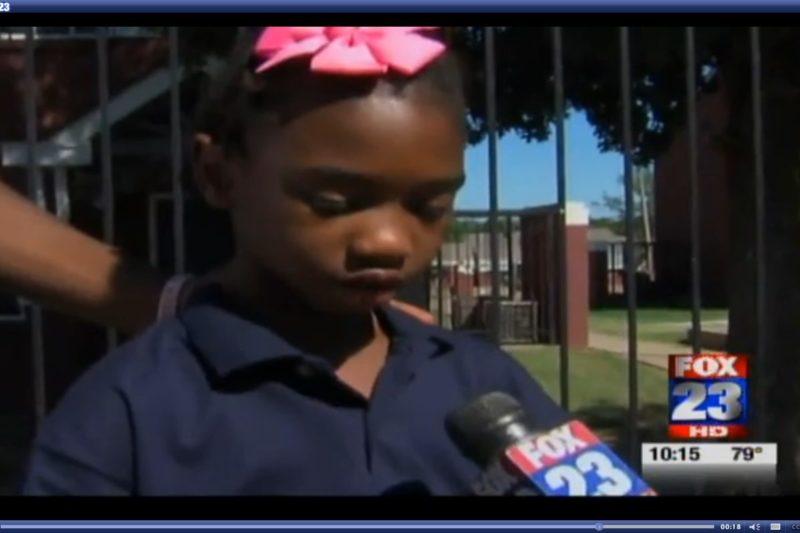Straight Hair Is Not the Ideal: Justice for Tiana Parker
Over 20,000 people joined me in demanding that the Deborah Brown Community School apologize to Tiana Parker, who was sent home for having dreadlocks, and change its racist policy. And our voices were heard.

Last week, when I saw headlines about a young girl in Tulsa, Oklahoma, who was sent home from her charter school because she had dreadlocks, I was skeptical that a school would truly dismiss a student just for having a certain hairstyle. But after I finally read an article detailing what Deborah Brown Community School did, I realized I was wrong. I watched 7-year-old Tiana Parker burst into tears on camera, and my heart broke at the sight of a child in such pain. Then I became enraged that a school’s policy would hurt a young Black girl for wearing her hair naturally, despite it being short and well-kept.
When Parker was sent home, it was because her hairstyle broke the school’s dress code, which stated, “hairstyles such as dreadlocks, afros, mohawks, and other faddish styles are unacceptable.” It is interesting that every hairstyle explicitly mentioned—and subsequently forbidden—in the policy originates from a culture of color (the mohawk originates from the Native-American Iroquois people), and it is particularly troubling that two of those hairstyles are almost exclusively worn by Black people. To deem these hairstyles as “faddish” diminishes and dismisses the long histories the styles have within Black communities.
The policy also institutionalized the message that natural Black hair is somehow inferior and less “professional” if it is not hidden from sight through a weave, extensions, or a wig. A quick perusal of the school’s website reveals that the school’s administration and board is overwhelmingly Black, which did not make the policy any less racist. In fact, it served as a troubling reminder that even members of the Black community internalize messages about Western beauty norms that uphold straight hair as the ideal.
My problem with the policy did not end with its targeting of natural Black hairstyles. Not only did the school’s policy perpetuate the idea that natural Black hair is somehow inferior to other types of hair, but it also created a barrier to education to which all children have a right. Parker, a straight-A student, had to miss valuable class time through no fault of her own, because of an offensive and unjust policy. While she is fortunate that her parents were able to find another school in which to place her, I could not help but wonder about additional academic consequences she might have faced if there were no other educational opportunities similar to those offered at the local charter school.
Fortunately, I was not alone in my outrage. Over 20,000 people joined me in demanding that the Deborah Brown Community School apologize and change its racist policy. It looks like our voices were heard. Yesterday, the school board met and voted to change its guidelines regarding what specific hairstyles are deemed unacceptable.
According to News 6, the policy now states:
Each student and the parents/guardians of the student are responsible for the personal hygiene of the student. The Administration reserves the right to contact the parents/guardians regarding any personal hygiene issues that it believes causes a risk to the health, safety and welfare of the student, his or her classmates, and faculty or staff or detracts from the educational environment.
This is a great victory for equal access to education for young students of color. It is difficult enough for children of color in our school system without being told their hair is unacceptable in its natural state.

